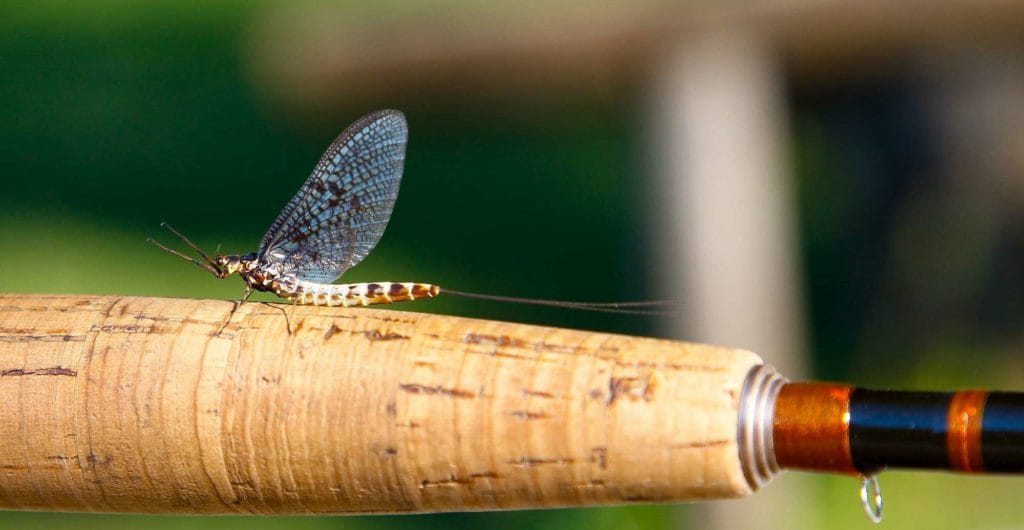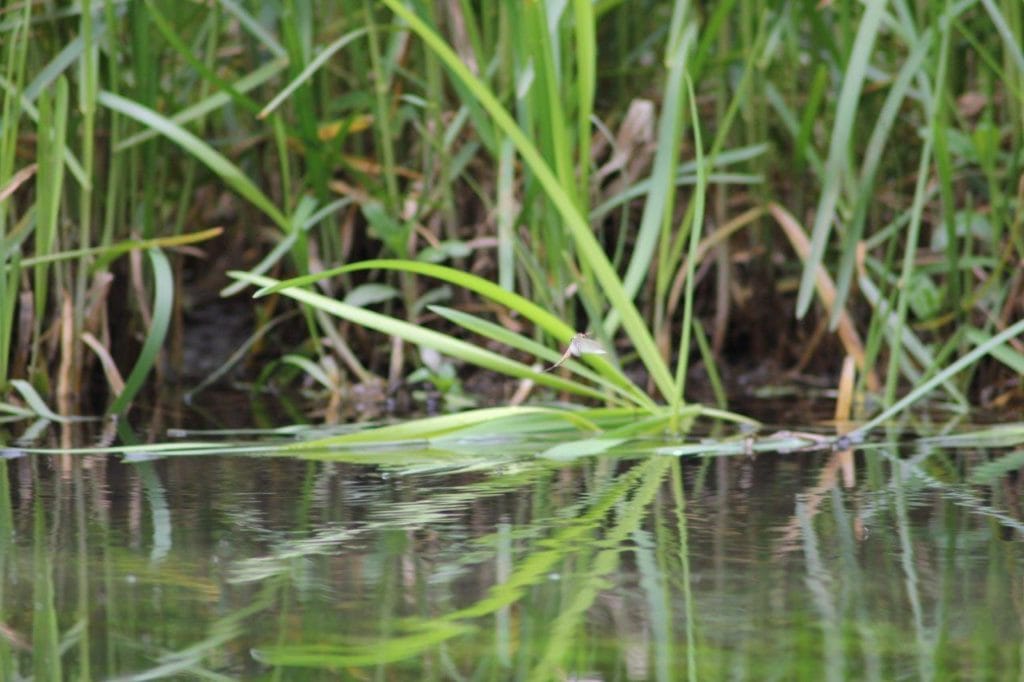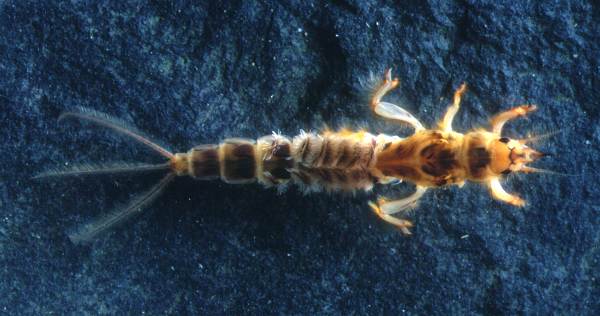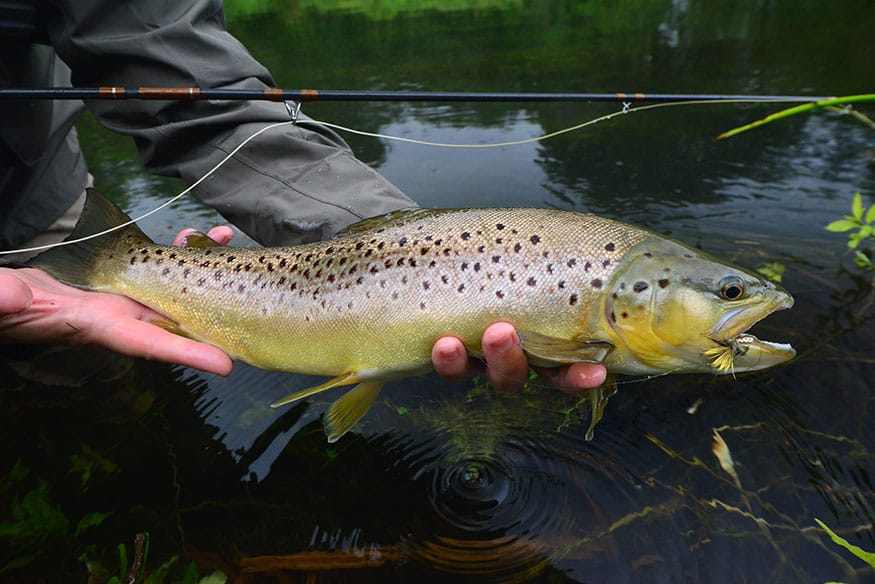When talking chalkstream fly fishing, and someone mentions a migration, you automatically think salmon. A most impressive feat, these fish start their lives in freshwater, change their body to suit a new environment and travel hundreds of miles out to sea to feed, and return to the same river, even the same pool they were born in. Now that is mother nature showing off her skills right there. The migration we have in mind however is not salmon, and it may not appear as monumental, but in reality it is hugely important in the grand scheme of things. Come to think of it, the creature who performs this migration is on the menu for the young salmon, and every other fish, many birds, and most mammals that live along the river. The great mayfly.
The mayfly, Ephemera danica, is often considered a majestic creature, moving freely through water and effortlessly through the air. However, add just a small breeze and they become clumsy in the air, they have the same control as a hover craft on an ice ring. In an attempt to survive they try to wait until conditions are perfect before embarking on their migration.
From mid-May to early June, you will often see strong hatches of mayflies up and down our southern chalkstreams, some days the hatches will be stronger than others. They try to pick their day of emergence wisely to increase their chance of survival and procreation. Warm calm days seem to be a favourite, if they can make the breach and flutter to the underside of a leaf of a tree they are doing well. The migration of the mayfly is one that takes them upstream, it could be 10 yards, in a good southerly breeze they may even travel a few hundred yards. It may not seem like a voluntary migration, but a migration never the less.
[migration] – ‘Seasonal movement of animals from one region to another’.
If mayflies laid their eggs where they emerged, they would be washed downstream further and further each year. For some reason they understand this and try to make the upstream movement in order for the survival of their species.
Unlike most other up-winged flies in the order of ‘Ephemeroptera’, danica (mayfly) sets itself slightly apart. Firstly because of its high celebrity status in the fishing world, size, and its extended life in the nymphal form. Mayfly nymphs generally live in the river for two years. Their choice of habitat generally leans towards silty areas, but these creatures once hatched from the egg will adapt to their surroundings. This is a major part of their life cycle as they spend the majority of their time like this, feeding on dead and living microscopic plant life, and staying out of danger.
A year or two later, the fully matured nymphs come out of their safe place and make the swim to the surface, these next few moments are when the mayfly is at it’s most vulnerable. As they reach the surface it splits its skin and the new dun emerges from the old body (shuck). Once in fresh air, using the shuck as a buoyancy aid, the dun quickly dries and hardens it’s body and wings ready to take flight. They are absolute sitting targets at this stage. If they survived the drying process on the water, and didn’t become a welcome mouthful to a trout or duckling, they just have to survive the airborne barrage of attacks from the swallows and wagtails.
This migration just happens to fall into place perfectly in our chalkstream ecosystem, the timing of it seems clinical. Warm air, lots of animals need plenty of food on the long active days preparing for family life, the young need feeding, and to be taught to get their own food. And we need to catch a few fish, some of us have not cast a line since last September.
Take a look at our current mayfly availability HERE.
For more information or to book a day on the water with us please do not hesitate to contact Alex Jardine or call our office on +44(0)1980 847389.




